News
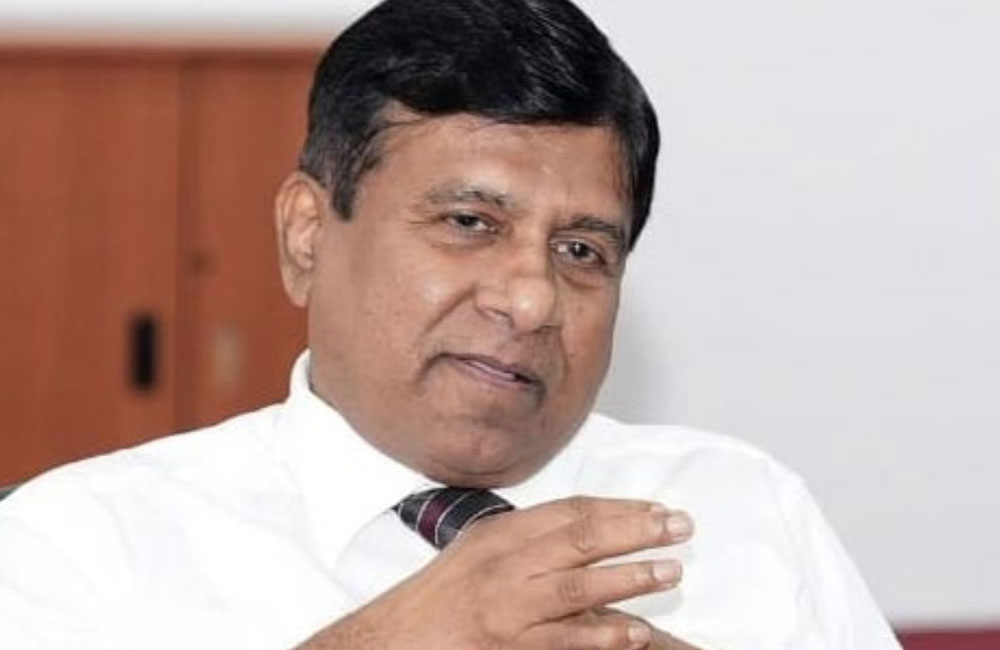
Changes to Colombo port city have no constitutional blockades - Wijeyadasa Rajapakshe
Any changes to the Colombo port city have no constitutional blockades, said former minister and lawyer Wijeyadasa Rajapakshe.
With 149 votes received in favour of Colombo Port City Economic Commission act no. 11 of 2021, it cannot be considered as having received a two-third parliamentary majority as per clause 157 of the constitution, he said in a letter to president Anura Kumara Dissanayake.
Incidentally, Rajapakshe did not vote in favour of the act.
He said president Dissanayake now has the opportunity to correct the historic wrong done, while explaining the ulterior motive behind the move by the rulers at the time to introduce an act in parliament, although the project could easily have been carried out through an agreement with the investor.

lankaleader.lk
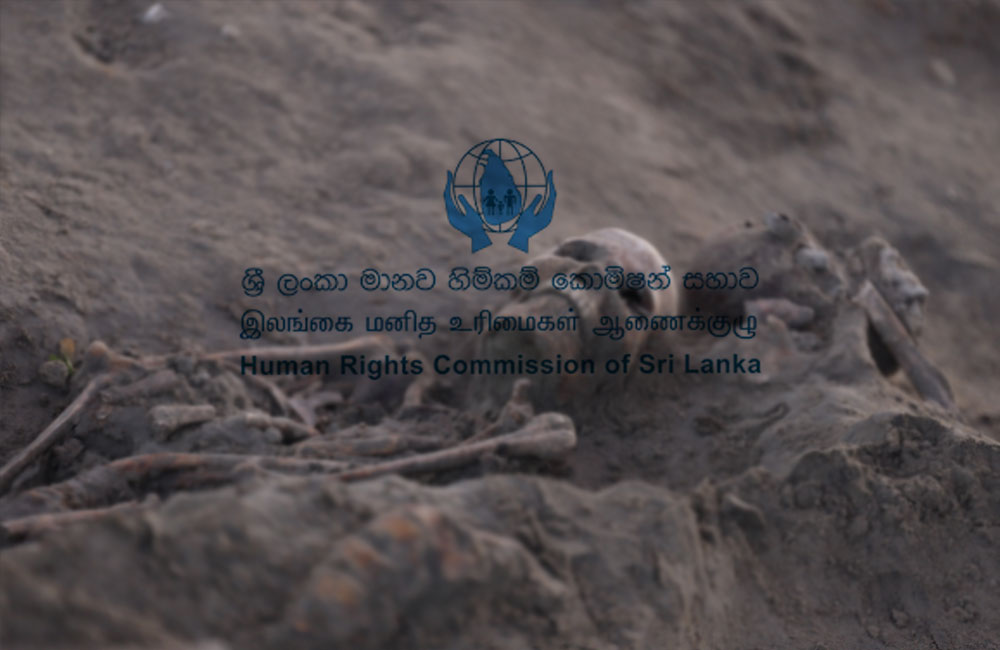
Evidence points to unlawful burials, possible war crimes at Chemmani - HRCSL
The Human Rights Commission of Sri Lanka (HRCSL) has raised alarm over serious procedural and institutional shortcomings in the ongoing investigation into the Chemmani mass grave in Jaffna, where over 200 human remains have so far been uncovered.
Following a fact-finding mission on 3–4 August 2025, the HRCSL released a detailed report on 3 September, outlining troubling findings — including allegations of intimidation by police, inadequate forensic capacity, and significant funding gaps — that may be impeding justice in what appears to be one of the country's most sensitive post-war investigations.
Indications of extrajudicial killings
The report reveals that the positioning and condition of the skeletal remains — many buried in shallow ground, some in close proximity to each other, and 90% lacking any clothing — suggest unlawful burials likely linked to extrajudicial executions.
The site has been under investigation by the Jaffna Magistrate’s Court, supported by the Judicial Medical Officer, Criminal Investigation Department (CID), and archaeological experts. However, HRCSL says key constraints — including lack of bomb-pulse 14C carbon dating, DNA analysis facilities, and forensic anthropology expertise — risk undermining the integrity of the investigation.
CID intimidation
The Commission flagged intimidation by CID officers toward officials and workers at the site, which it warned could "prejudice the outcome" of the investigation. HRCSL further cited the summoning of journalist Kumanan Kanapathippillai by the Counter Terrorism and Investigation Division (CTID), which it said could have a chilling effect on press freedom, as the journalist was actively reporting on the case at the time.
The HRCSL recommends the creation of a permanent, independent body to investigate and prosecute serious crimes committed by state officials, including enforced disappearances and extrajudicial killings.
Urgent reforms
The HRCSL has called on several ministries, including Justice, Defence, Finance, and Higher Education, to take urgent steps — from securing international forensic expertise, to exempting VAT on imported lab equipment, and developing local capacity in forensic anthropology and archaeology.
Among its 16 recommendations, the Commission stressed the need for a Standard Operating Procedure (SOP) for future mass grave investigations, regular public updates, and the establishment of a DNA bank to help identify the victims.
The Chemmani mass grave was first brought to public attention in the late 1990s following revelations by Sri Lankan soldiers. The current investigation marks the most significant exhumation at the site since then.
As the investigation continues, the HRCSL's report underscores the urgent need for institutional accountability, professional independence, and international collaboration to ensure justice for the disappeared and their families — a long-standing demand in Sri Lanka’s post-war reconciliation process.
lankaleader.lk
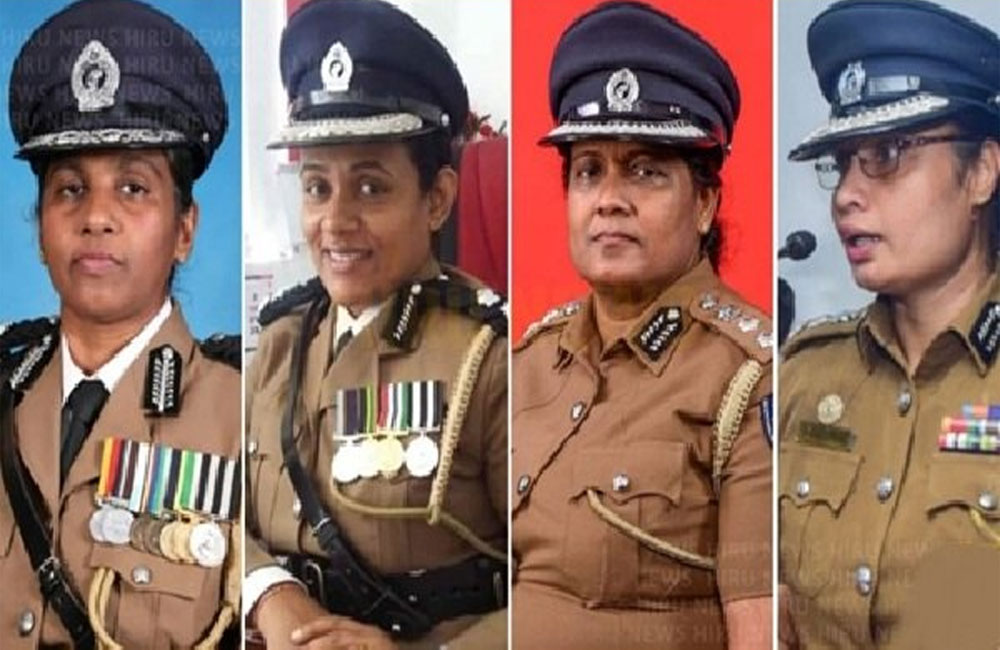
Four female cops promoted to DIG for the first time in Sri Lanka
For the first time in the history of the Sri Lanka Police, four female officers have been promoted to the rank of Deputy Inspector General of Police (DIG) at the same time.
The promotions were approved by the National Police Commission (NPC) and subsequently confirmed by Inspector General of Police (IGP) Priyantha Weerasuriya, and are effective from January 01 this year.
Accordingly, Darshika Kumari, Padmini Weerasuriya, Renuka Jayasundara, and Nishani Seneviratne are scheduled to assume duties as DIGs.
Darshika Kumari currently serves as the Commanding Officer of the Police Field Force Headquarters and is recognized as the first female officer to hold that position.
• Padmini Weerasuriya is presently the Acting DIG in charge of the Kalutara District, becoming the first female officer in Sri Lanka Police history to oversee a district.
• SSP Renuka Jayasundara, serves as the Acting DIG of the Bureau for the Investigation of Abuse of Children and Women.
• Nishani Seneviratne, the senior-most officer among the four, functions as the Acting DIG of the Research and Information Technology Range, having also served extensively with the State Intelligence Service.
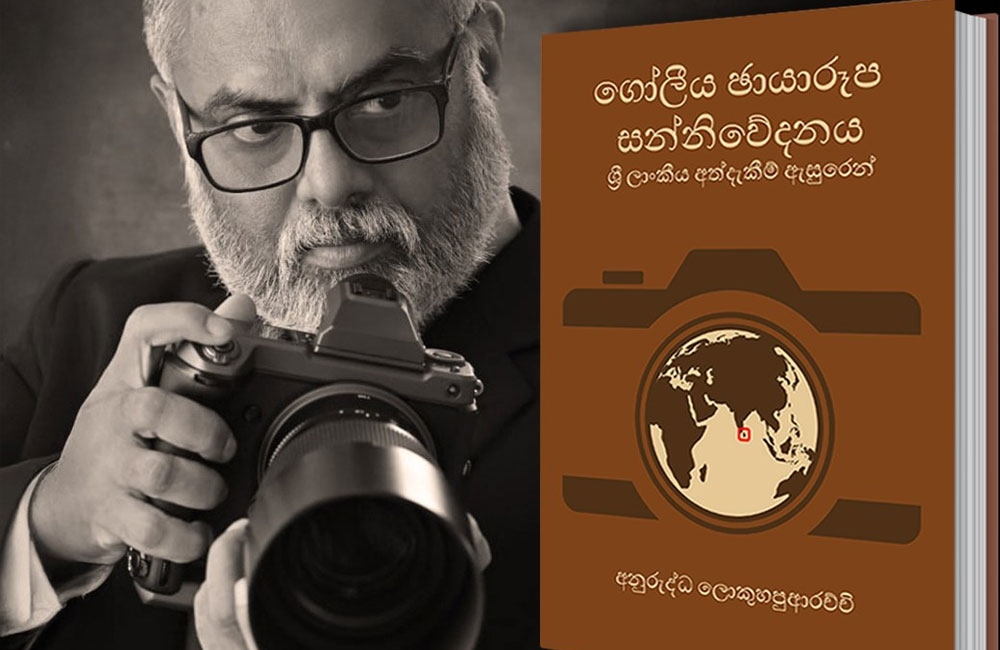
“Global Photography Communication Through the Lens of Sri Lankan Experiences” – Anuruddha’s Research Work, Sept. 09
The research work “Global Photography Communication Through the Lens of Sri Lankan Experiences” (“ගෝලීය ඡායාරූප සන්නිවේදනය, ශ්රී ලාංකික අත්දැකීම් ඇසුරෙන්”), authored by veteran photographer Anuruddha Lokuhapuarachchi, will be presented on September 9 at 3:00 PM at the Mahaweli Centre Auditorium, located on Anand Kumaraswamy Mawatha, Colombo 07.
Anuruddha Lokuhapuarachchi is an internationally recognized Sri Lankan photojournalist and author with over 40 years of experience in photography and media. His professional career spans coverage of war, social struggles, and cultural life, including work for Reuters and other global media organizations. After spending more than 16 years abroad, Lokuhapuarachchi returned to Sri Lanka to continue his contributions to media, arts, and education.
He currently serves as the Director of International Media and Strategic Communications to the President of Sri Lanka.
The research work traces the evolution of photographic communication from historical contexts to the digital era, blending Sri Lankan experiences with global perspectives. It explores how photography shapes visual truth, memory, and human connection. Drawing on four decades of Sri Lankan and international experience, the study presents a rare journey through historical and traditional forms of photography to the digital transformations of today, highlighting the interplay of human reality, memory, and relational bonds.
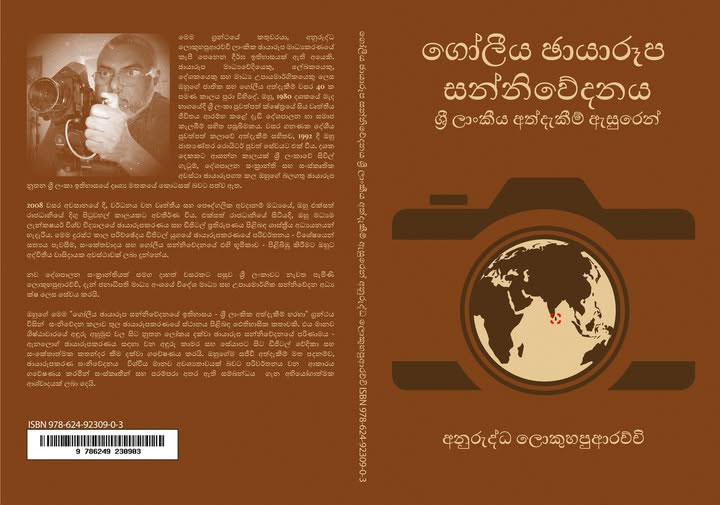
According to the author, Anuruddha Lokuhapuarachchi, this book is not just about photography—it explores how visual communication becomes part of our collective memory. It reflects the close relationship between storytelling, history, the camera, and society.
The book “Global Photography Communication” ( (“ගෝලීය ඡායාරූප සන්නිවේදනය") integrates personal narratives, historical research, and visual perspectives through Sri Lankan experiences. It examines the role of photography in the evolution of global news media and the shaping of public opinion. Written in a reflective and artistic style, this work is designed for readers interested in photography, photojournalism, history, mass communication, and visual storytelling.
At the book launch, insights will be shared by Professor Tudor Weerasinghe (University of Colombo, Sri Pali Faculty), Dr. Udit Gayashan Gunasekara (Chairperson, Sri Lanka Broadcasting Corporation), Faisal Samath (former Reuters bureau chief and advisor), critics from the Sunday Times, and photographer and film director Bupathi Nalin Wickramage.
The Sinhala edition of the book will be available for purchase on the day, while pre-orders for the English edition can also be placed. Although the standard price is LKR 3,400, copies will be available for LKR 2,400 for purchases and pre-orders on the launch day.
The author warmly invites all to participate in this special occasion.
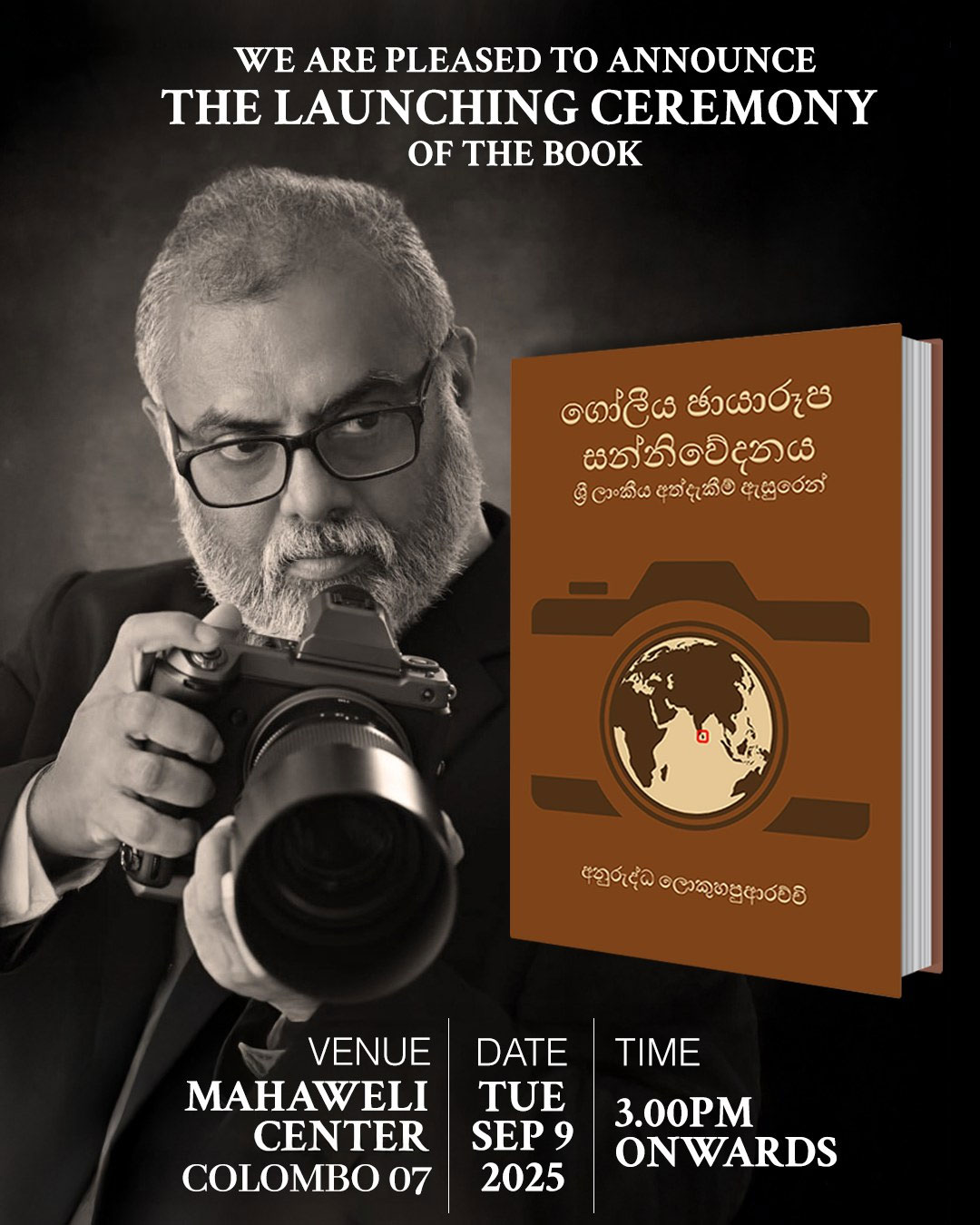
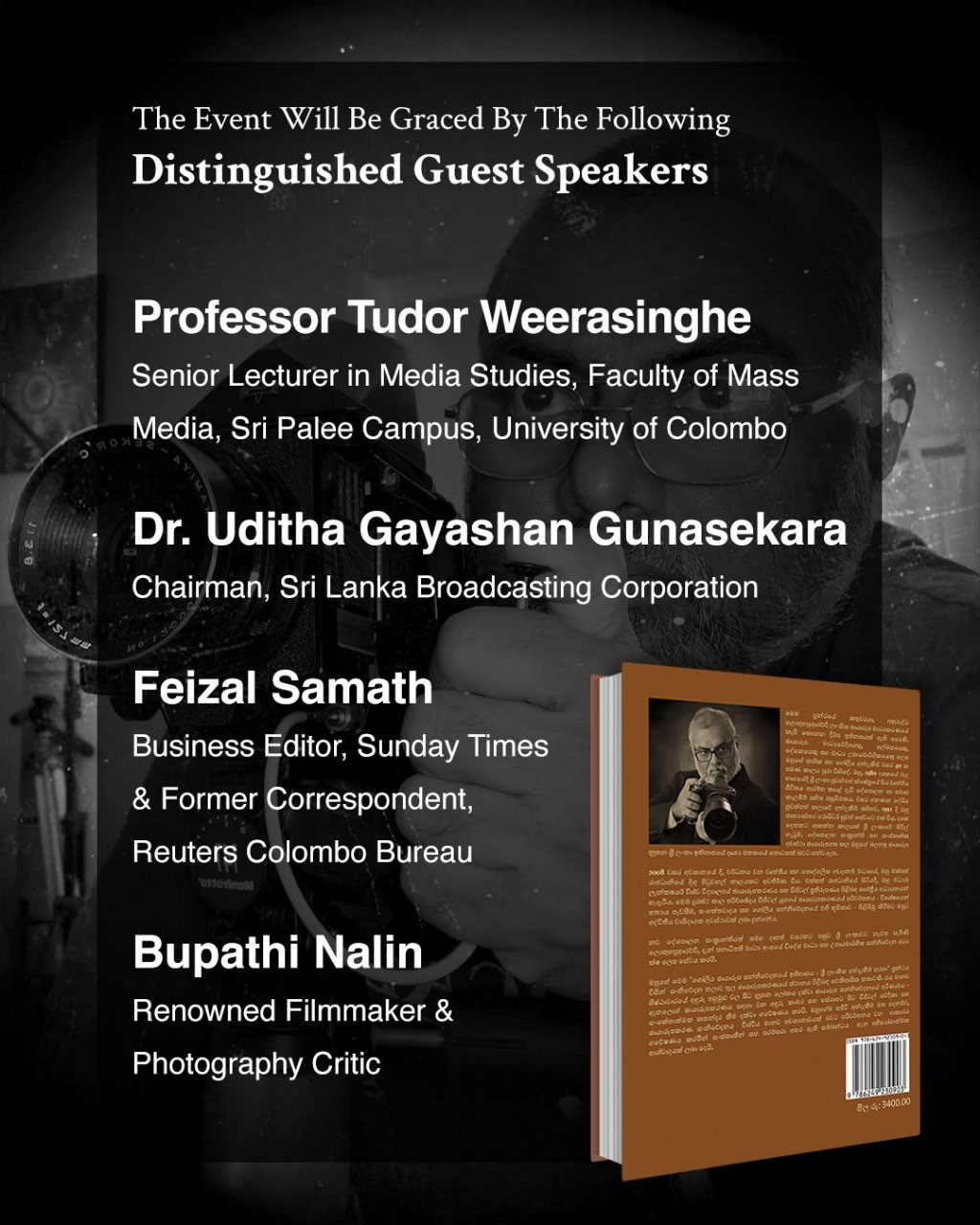
(Note – Jayasiri Alawatta)
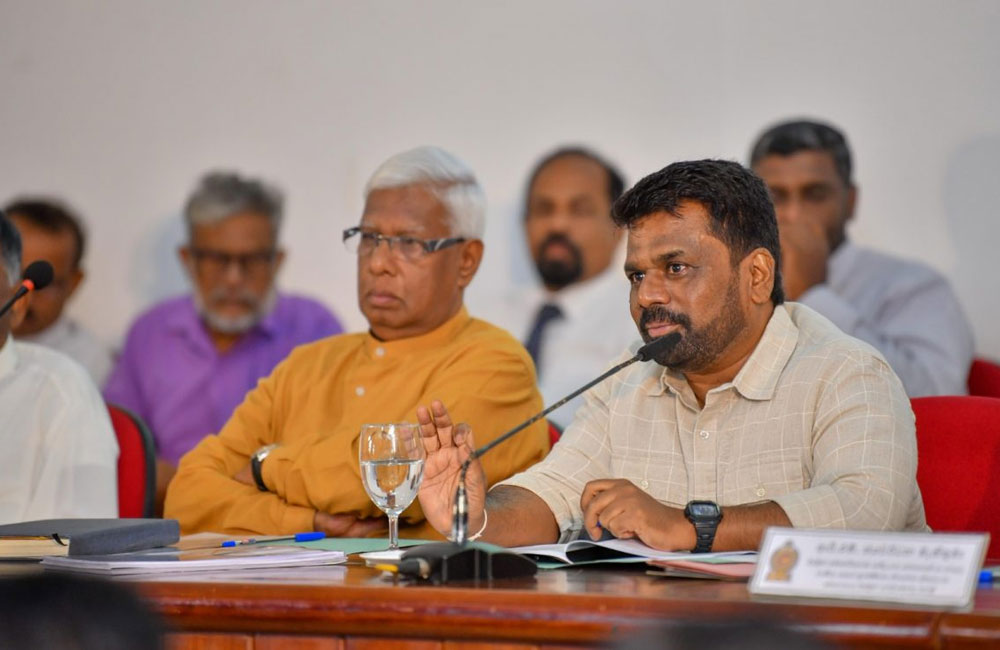
Give priority to preventing delays in development projects
President, Anura Kumara Dissanayake, stressed that it is the responsibility of state officials in each district to ensure that development projects implemented at district level are not delayed and that their benefits reach the people within the stipulated timeframe. He further stated that once a development project is initiated, officials must maintain a target plan up to its completion date.
The President pointed out that failing to complete previously launched development projects on time and unnecessarily extending their duration, has increased estimated costs, depriving the country of both the intended benefits and the return on investment. He emphasised that from this year onwards, all development projects must be completed by their scheduled dates.
The President made these remarks this afternoon (06), addressing the Monaragala District Special Coordinating Committee meeting held at the Monaragala District Secretariat.
The meeting reviewed the progress of various development projects being implemented in the Monaragala District in 2025 by ministries, departments and institutions, while also assessing future development requirements.
The President stated that funds would be allocated at any time for development projects essential to the people. He added that if there are projects costing less than Rs. 100 million but vital to the public, money could be provided even this year. He also stressed that in order to ensure treasury funds reach villages, rural development projects must be expedited.
Special attention was also given to the problem faced by farmers who lost cultivation lands due to boundary demarcations of the Kotiyagala-Kebilitta reserve. The President instructed officials to establish a structured mechanism to resolve such land-related issues of farmers.
Attention was also drawn to vacancies in various state institutions within the district. The President noted that approval has already been granted to recruit 62,000 new employees into the public service this year and this number may increase to 100,000 depending on requirements. He instructed officials to ensure these vacancies are filled accordingly.
The President added that the government is committed to modernising the public service and that special attention has been given in this year’s budget to strengthening local government institutions and modernising state administration. He stressed that the problem today is not the size of the public service, but the high costs incurred to sustain it.
The President further stated that the upcoming budget will also give priority to equipping Pradeshiya Sabhas with necessary equipment and strengthening local government institutions.
Highlighting that some irrigation projects have remained incomplete for years despite heavy expenditure, the President stressed the need to review large-scale irrigation projects.
He further stated that renewed attention should be given to major constructions undertaken by state institutions and that their actual necessity must be reviewed. The President instructed officials to identify long-delayed state construction projects, evaluate their need and propose alternatives where necessary.
The President stated that approval has been granted to increase the limit on contracts that can be awarded to community-based organisations during the implementation of development projects, with the objective of expediting rural development.
The discussions also covered the absence of an Urban Council for Monaragala, the establishment of a Pradeshiya Sabha for the Sevanagala Divisional Secretariat Division and the provision of 5 acres of land each to 72 farmers who lost their lands due to the Siyambalanduwa solar power project.
The progress of granting lease deeds for the Buttala Industrial Zone was also reviewed, along with discussions on road and bridge development in the district and the construction of a residential treatment unit for Thalassemia patients.
The event was attended by Uva Province Governor, Attorney-at-Law Kapila Jayasekara; Deputy Minister of Trade, Commerce and Food Security, R.M. Jayawardena; Members of Parliament Ajith Agalakada, H.M. Dharmasena, Ruwan Wijeweera and Sarath Kumara; as well as Monaragala District Secretary M.M. Wijenayake and other state officials of the district.

Digital VAT Deadline Pushed to April Next Year
The Cabinet has decided to postpone the imposition of VAT on digital services until April 1 next year.
This decision responds to requests from non-resident digital service providers for additional time to comply with VAT requirements on value-added digital services. Under the amended Value Added Tax Act No. 4 of 2025, which takes effect from October 1, 2025, VAT is applicable to digital services supplied by non-residents.
Although VAT collection was initially planned to start on October 1 this year, the start date has now been revised to April 1, 2026. The necessary procedural amendments are being drafted to align with this revised timeline, following proposals presented by the Minister of Finance, Procurement, and Economic Development, Anura Kumara Dissanayake.
The VAT will apply to a wide range of digital services, including cybersecurity, software services, digital marketing, IT services, e-commerce, social media platforms, online marketplaces, and on-demand services.
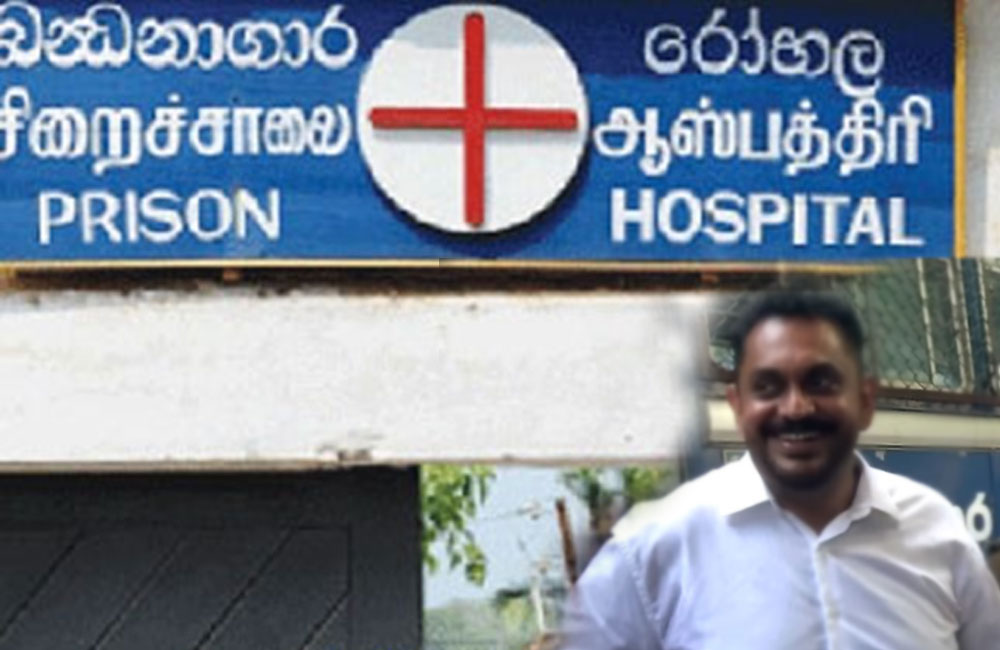
From Cell to Ward: Shasheendra Rajapaksa Admitted to Prison Hospital
Former State Minister Shasheendra Rajapaksa, who is currently in remand custody, has been admitted to the Prison Hospital.
Prisons Spokesman Jagath Weerasinghe stated that Rajapaksa was transferred to the hospital yesterday (5) evening on medical advice. He further noted that the admission was due to health complications.
The case against him was last taken up on August 29, when the Colombo Chief Magistrate ordered that he be further remanded until September 12. Rajapaksa was arrested by the Commission to Investigate Allegations of Bribery or Corruption on charges of committing an offence under the Prevention of Corruption Act. The allegations stem from the unlawful acquisition of Rs. 8.85 million as compensation, following the destruction of his political office—built on Mahaweli land—by protesters during the Aragalaya movement.
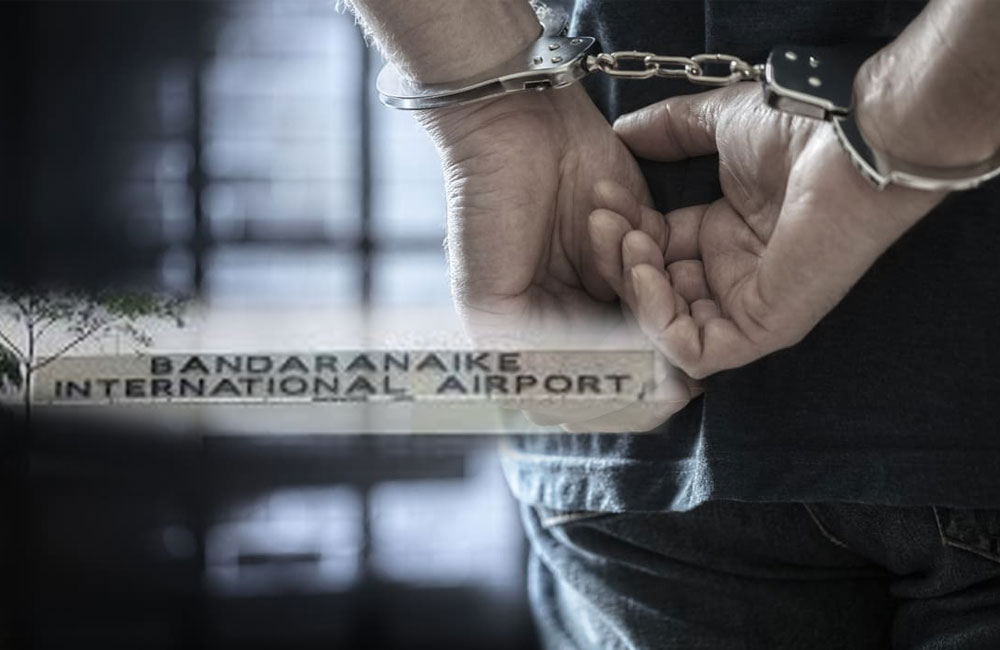
Indian National Caught with Rs. 105M Kush at BIA
An Indian man was caught attempting to smuggle a large consignment of “Kush” cannabis worth Rs. 105 million through the “Green Channel” at Bandaranaike International Airport (BIA) this morning (05) by airport customs officials.
The suspect is said to be a 43-year-old salesman from New Delhi and had purchased the cannabis from Bangkok, Thailand.
This marks the first arrest made using the new scanning machine installed at the Customs Arrival Terminal’s Green Channel in Katunayake.
The seized cannabis and the suspect are set to be handed over to the Police Narcotics Bureau (PNB) at BIA for further investigation.

Turning of the Climate
The Department of Meteorology reports that scattered showers are likely today (06) in the Western, Sabaragamuwa, and Northern Provinces, as well as in the Galle, Matara, Kandy, and Nuwara Eliya districts.
In addition, thundershowers or occasional rainfall may occur in a few places in the Uva, Eastern, and North-Central Provinces after around 2.00 p.m.
Meanwhile, fair and dry weather is expected to prevail across most other parts of the island.

Nine-hour water cut in Colombo and suburbs cancelled
The National Water Supply and Drainage Board (NWSDB) has announced that the nine-hour water cut, originally scheduled from 10:30 a.m. to 7:30 p.m. tomorrow (06), affecting several areas including Colombo, has been cancelled.
Earlier, the NWSDB had stated that the water cut would affect all areas from Colombo 01 to Colombo 15.
In addition, the water cut was expected to impact the following areas: Battaramulla, Pelawatta, Hokandara, Koswatte, Thalawathugoda, Kotte, Rajagiriya, Mirihana, Madiwela, Nugegoda, Nawala, Kolonnawa, IDH, Kotikawatte, Angoda, Wellampitiya, Orugodawatte, Mulleriyawa, Maharagama, Boralesgamuwa, Dehiwala, Ratmalana, and Moratuwa.
adaderana.lk

Total Lunar Eclipse Tomorrow
A total lunar eclipse will be visible tomorrow (07) from 8:30 p.m. until 2:30 a.m.
Astronomer Anura C. Perera stated that this will be the first opportunity in six years for the people of Sri Lanka to witness such an eclipse.
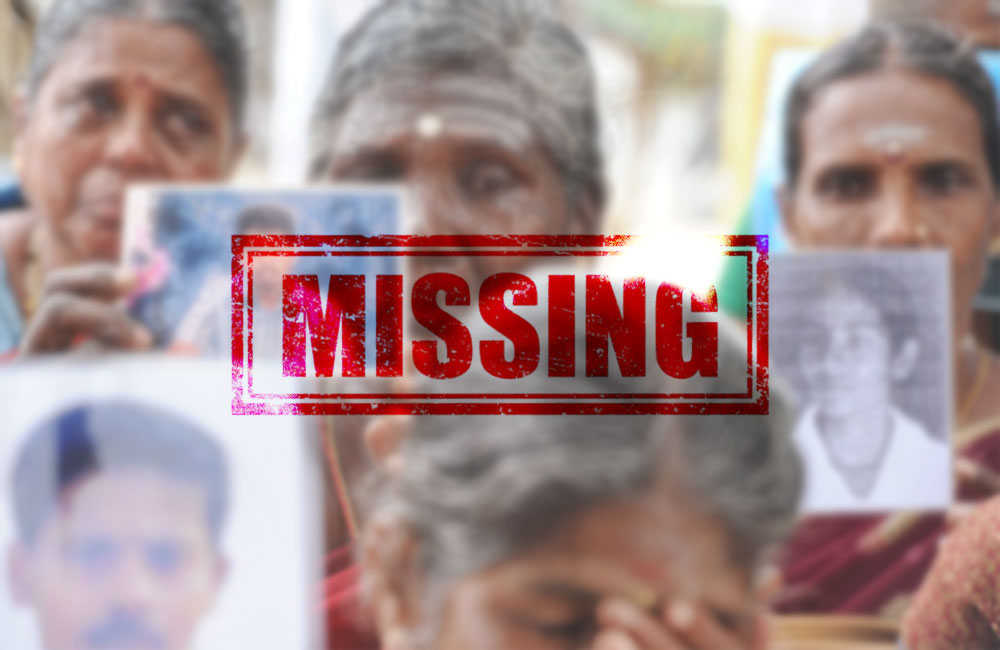
New Initiative: 25 Committees to Examine Disappearances
The Cabinet of Ministers has given approval for the launch of a special project aimed at expediting investigations into complaints concerning missing persons.
The Office on Missing Persons (OMP), established under the Office on Missing Persons (Establishment, Administration and Discharge of Functions) Act, No. 14 of 2016, is mandated to investigate cases of individuals reported missing or unaccounted for and to provide reports to their families.
Government data reveals that the OMP has received a total of 16,966 complaints to date, with 10,517 cases still pending further inquiry.
To ensure justice for affected families and to conclude all pending investigations and related responsibilities by the end of 2027, the Cabinet has approved a proposal presented by the Minister of Justice and National Integration.
As part of this initiative, 25 panels will be established, comprising 75 professionals—including retired judges, senior administrative officers, and legal experts—to accelerate the inquiry process and bring long-awaited closure to families of the missing.
Page 120 of 681